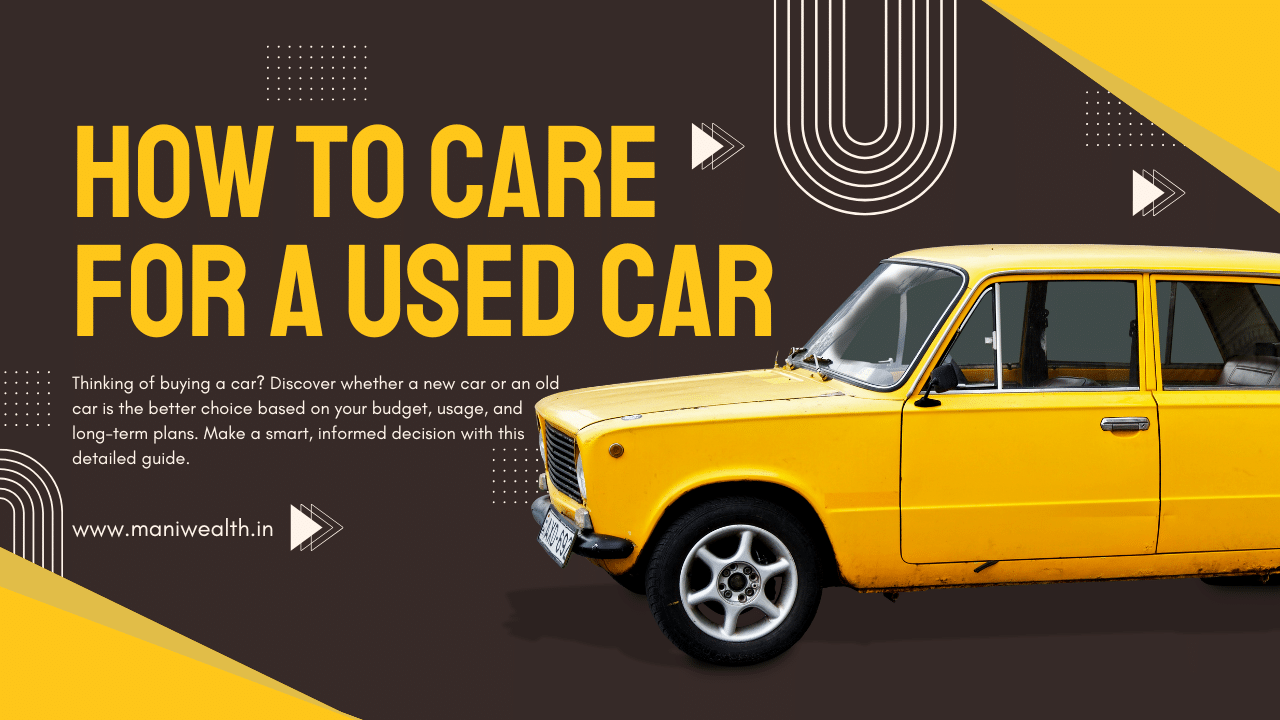New Car or Old Car: What Should You Choose?

Once a symbol of luxury reserved only for the rich, owning a car has now made its way onto the middle-class bucket list. For many, a car is not just a mode of transportation—it’s a milestone. But here comes the million-rupee question: should you buy a new car or settle for an old one?
Whether you’re eyeing the shiny new model or scrolling through second-hand car listings, it’s important to pause and ask: Do you really need a car? When should you buy it? And most importantly, why are you buying it? If you rush into buying a car without answering these questions, you may only end up wasting money rather than gaining convenience or satisfaction.
The Influence of Society
Society plays a bigger role in our decisions than we like to admit. Sometimes, a distant cousin’s new car can set off a chain reaction. Suddenly, we feel the pressure to upgrade or match up. The desire to “show off” often pushes people to stretch their budgets. They may postpone vacations or other plans—but once the car bug bites, it becomes a daily routine to visit showrooms, collect brochures, and compare quotes online.

Soon, questions flood your mind:
-
Is this a new car or a used one?
-
What’s the mileage?
-
What’s the asking price?
In the middle of all this excitement, however, the most important question is ignored: Do I really need this car right now?
Think Before You Buy
In today’s world, getting a car loan is easy. If you earn ₹40,000 a month, you can drive home a ₹6 lakh car with the help of financing. But that doesn’t mean you should rush into it. Think carefully about your needs.
-
If you plan to use the car for just a couple of years, buying a used car makes more sense.
-
If you’re committed to keeping it for at least five years, investing in a new car is a smarter move.
Some people believe it’s wise to first buy an old car, learn driving, and then upgrade to a new one. But this isn’t always true. Consider insurance: if a new car meets with an accident, the claim might cover up to 100% of the repair costs (minus a small deductible). The same accident in an old car might only get 50% coverage. Either way, your car could be out of commission for two months—so buying a second-hand car just to practice driving might not be worth it.

The Loan Equation
One reason people opt for used cars is the assumption that they’re much cheaper. But let’s break it down.
-
For a new car priced at ₹10 lakh, banks may offer up to 90% loan, so you only need ₹1 lakh as a down payment.
-
For an old car priced at ₹6 lakh, the bank might offer only 60% financing. That means you need to pay ₹2.4 lakh upfront.
And here’s the catch—interest rates are usually higher for second-hand car loans. This increases your monthly EMI burden and can strain your finances in the long run.
Know the Resale Value
Before making your decision, estimate how long you plan to keep the car. If you’re likely to sell it in two years, remember that new cars depreciate faster than used ones.
Let’s say:
-
You buy a new car for ₹10 lakh. After two years, it might only sell for ₹6 lakh.
-
You buy a second-hand car for ₹6 lakh. After two years, you could still get around ₹3.5 lakh.
The loss percentage is higher in the case of a new car. That’s a critical point to keep in mind.
Also, compare maintenance costs, mileage, and potential repairs. These will help you understand the real cost of ownership beyond just the purchase price.
Buy Only If Necessary
Buying a car has never been easier. But the question remains: Do you need one?
If your income is stable and you have the financial flexibility to handle a car EMI without affecting your children’s education, household expenses, or other essential needs—then go ahead and buy, whether it’s new or old.
But if you’re running on a tight monthly budget, it’s better to start small. Choose a modest, fuel-efficient car that fits your lifestyle. What matters most is not how the car looks on the outside, but how comfortably you can manage it without compromising your financial health.
Final Thoughts:
A car can be a convenience, a necessity, or a status symbol. But for it to truly be a smart investment, it must align with your needs, your usage plans, and most importantly—your finances. So before you take the wheel, take some time to steer your decision in the right direction.
✨ About Me
Hi! I’m Manikanta Reddy, a passionate finance enthusiast with a strong understanding of money management, personal finance, and smart investment strategies. I believe financial literacy is the foundation of a secure and stress-free life — and I’m here to share practical insights, real-life examples, and simplified advice to help you make better financial decisions.
Whether it’s choosing between paying off a loan or investing, building emergency funds, or planning for retirement — I love breaking down complex topics into easy, actionable tips that anyone can follow.
Let’s learn, grow, and build wealth — the smart way. 💰






good information sir